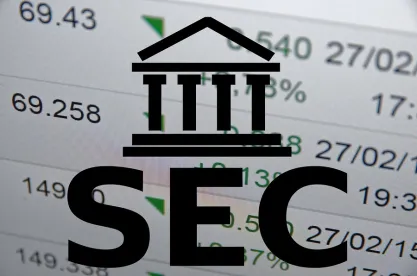Business Point
The requirement that a private issuer delivers financial statements and risk factor disclosures in connection with the offer and sale of its securities to its employees and other service providers under written compensatory plans now applies only to aggregate sales over $10,000,000 (increased from $5,000,000) per 12-month period. While this is welcome news, private issuers should be aware of increased focus by the SEC in this area. A recent SEC order fined a private issuer for failing to deliver such documentation to its employees when the dollar threshold was exceeded. The SEC order did, however, indicate that remedial actions, such as delivering the necessary documentation after notification by the SEC, could be a factor taken into account by the SEC to lower any SEC penalty amount.
Technical Points
Under Rule 701 of the Securities Act of 1933, private issuers are not required for federal securities law purposes to register securities offered and sold to employees and other service providers under written compensatory plans if certain requirements are met. The aggregate sales price or amount of securities that may be sold during any 12-month period may not exceed the greatest of: (i) $1,000,000; (ii) 15 percent of the total assets of the issuer; or (iii) 15 percent of outstanding amount of the class of securities being offered.
Under Rule 701, the private issuer must give all equity award holders a copy of the applicable compensatory plan. In addition, if, during any 12-month period, the aggregate sales price (as determined under Rule 701) exceeds $5,000,000 (soon to be $10,000,000), the private issuer must deliver enhanced disclosure to the equity award holders within a reasonable period of time before the date of sale, including detailed information about the risks associated with the potential investment and balance sheets, income statements and other financial statements.
Section 507 of the Economic Growth, Regulatory Relief, and Consumer Protection Act (EGRRCPA), signed into law on May 24, 2018, instructs the SEC to revise Rule 701 to raise the enhanced disclosure threshold from $5,000,000 to $10,000,000 within 60 days after enactment of the EGRRCPA. EGRRCPA also requires the SEC to index the $10,000,000 limit for inflation every five years.
Failure to meet the enhanced disclosure requirements of Rule 701 can lead to stiff SEC penalties and also potential lawsuits from affected investors. On March 12, 2018, the SEC agreed to a settlement of a $160,000 civil penalty with Credit Karma, Inc., a California-based personal financial management company, for failing to deliver enhanced disclosure to its employees once it exceeded the $5,000,000 aggregate sales threshold (pre-EGRRCPA) during a 12-month period. From October 2014 to September 2015, Credit Karma issued just under $14 million (based on the aggregate exercise price) in stock options to its employees without delivering the enhanced disclosure required by Rule 701 or otherwise satisfying another exemption from registration. Since the shares of stock underlying stock options are treated under Rule 701 as sold on the date of grant valued at the shares’ aggregate exercise price (even if the stock option is unexercised), the stock option grants were nearly $9 million in excess of the threshold.
The SEC order detailing the settlement indicates that while Credit Karma periodically provided limited financial information to the employees who received options (option holders), it did not deliver information meeting the enhanced disclosure requirements. Although Credit Karma did provide fulsome financial information to institutional investors, it did not deliver the same to option holders due to concerns regarding confidentiality. Less than two weeks after receiving the SEC’s inquiry into its Rule 701 compliance, Credit Karma delivered option holders with information satisfying the enhanced disclosure requirements. In accepting Credit Karma’s offer to settle the violation for a $160,000 civil penalty, the SEC order highlights the prompt remedial action taken by the company and the company’s cooperation with the SEC.
As a takeaway, private issuers should (i) carefully monitor how close they are to the $5,000,000 (soon to be $10,000,000) enhanced disclosure threshold during each applicable 12-month period and (ii) in the event a violation is discovered, take prompt remedial action, including delivering the necessary enhanced disclosure materials to option holders.





 />i
/>i

